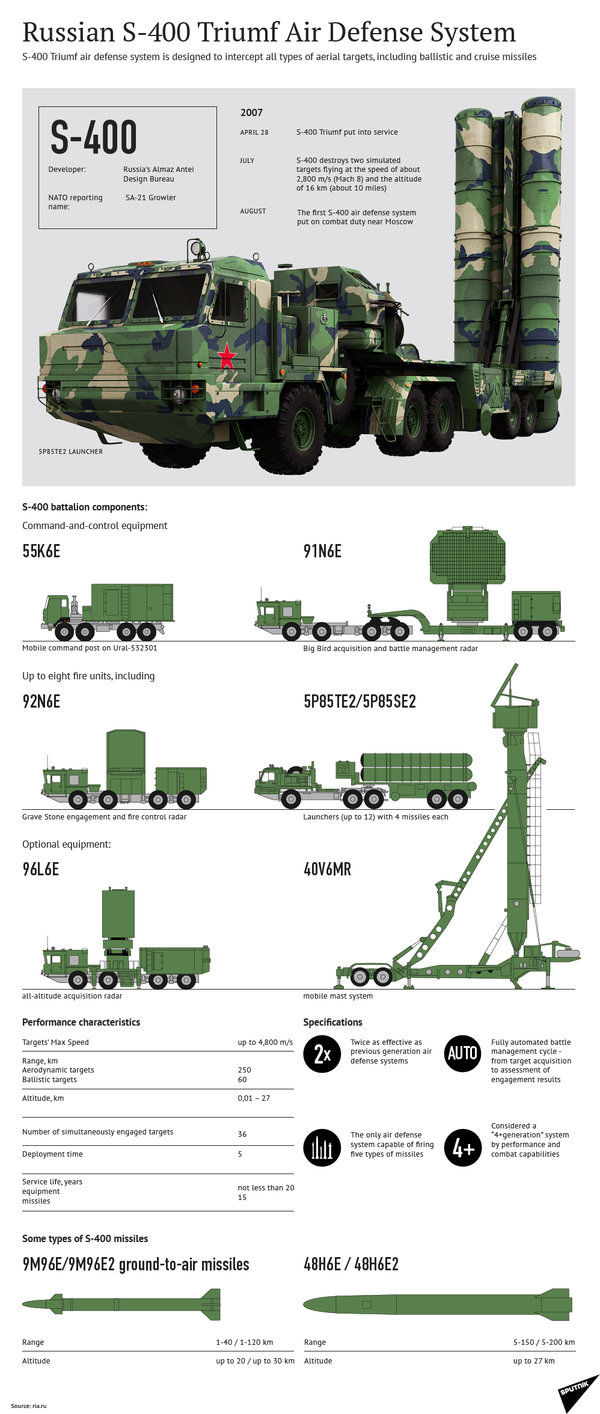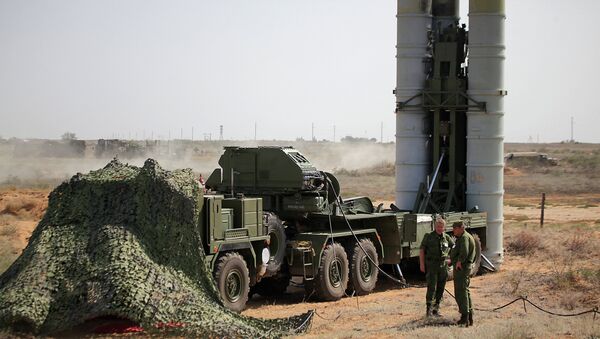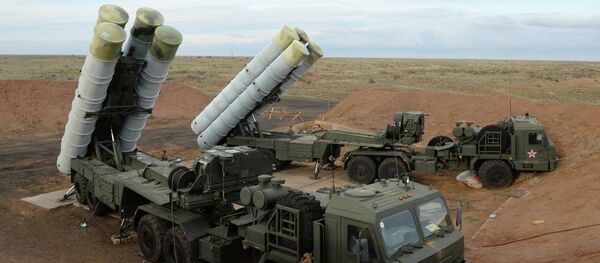The news was confirmed on April 13 when Anatoly Isaikin, CEO of Russia's arms export agency Rosoboronexport, said in an interview that China hads purchased Russia's advanced air defense system, Japan's business newspaper the Nikkei, wrote in a comment on Monday.
Moscow, however, had been reluctant to deliver the system to China. It was concerned that Beijing would buy only a small number of the coveted system with the intent of disassembling it and learning how to build it.
Although Moscow and Beijing have yet to officially announce the deal, it seems almost certain that they have agreed on the sale, which Tokyo fears may upset the subtle military balance in the East China Sea.
If the deal is finalized, China will become the first foreign country to buy the S-400 missile system.
China already owns the latest air defense system's predecessor, the S-300. However, the older system has a range of just 300 kilometers, which means it can only reach as far as some parts of Taiwan.
Tokyo and Beijing have recently been slowly but steadily working at mending diplomatic relations, with Japanese Prime Minister Shinzo Abe having met Chinese President Xi Jinping on Wednesday.
It seems unlikely that the two countries would use force to take the islets anytime in the near future. However, Beijing may mull taking bolder actions in the waters surrounding the Senkaku Islands if it becomes convinced of any military advantage in the Senkaku area.
Moscow, meanwhile, is also well aware of the threat that sales of the S-400 system to China may present to Japan.
Moscow is increasingly frustrated by Tokyo's sanctions, even though they are not as harsh as those imposed by Washington. The source said that the Kremlin feels that Japan was just trying to please Washington by forcing Russia to pay for its alleged intervention in Ukraine.
It is possible that Vladimir Putin authorized the sale of the S-400 to raise funds amid economic grievances arising from Western sanctions.
Some within Abe's government said that Japan should not be too strict with Russia, because sanctions that are too harsh may push Moscow closer to Beijing, which is against the national interest of Japan, Nikkei wrote in a comment.





